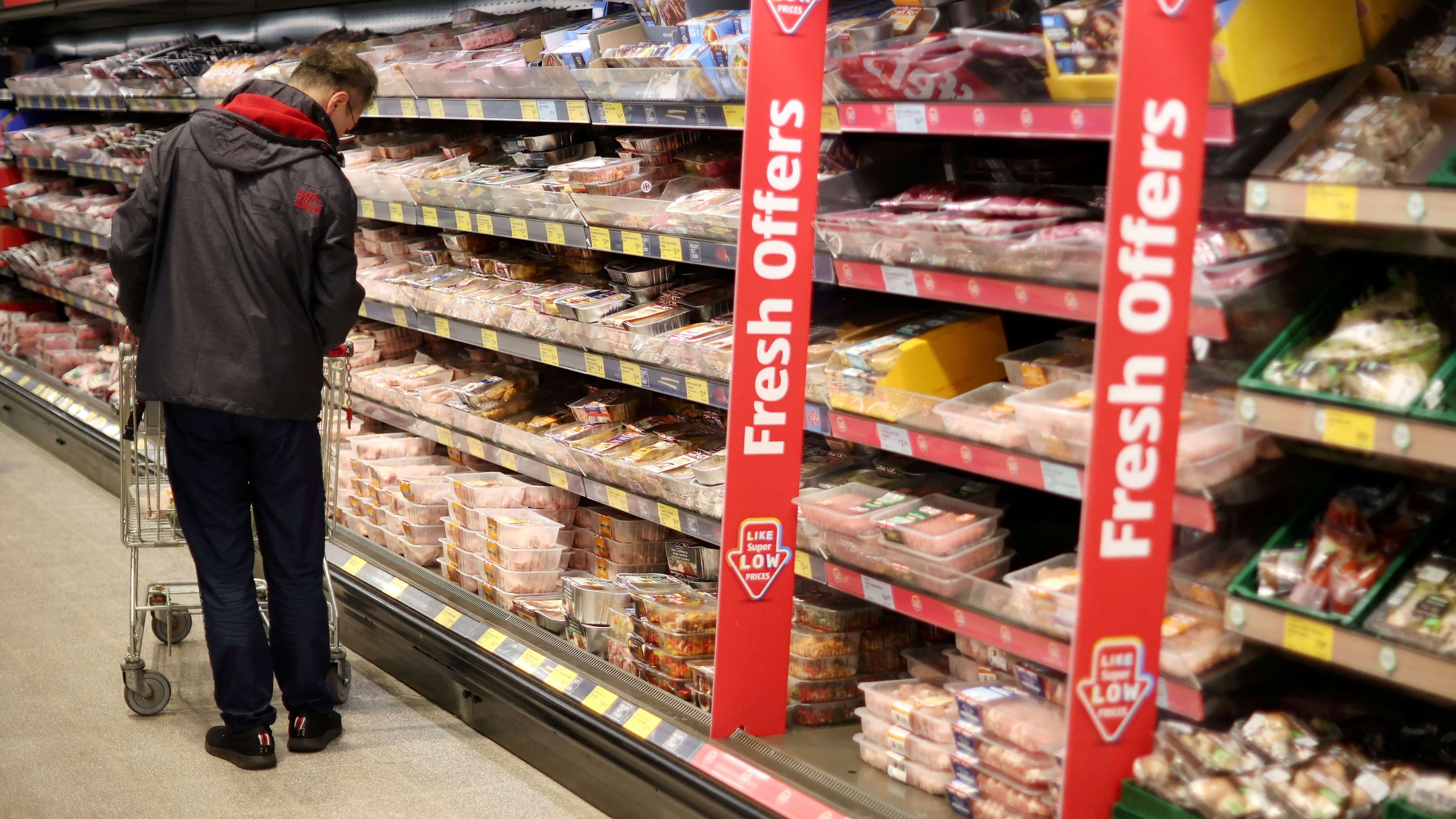UK Retailers Report Record Food Inflation But See Falls Ahead
Heavy discounting reduced the prices of clothing, footwear and furniture.

Food prices at British supermarkets rose 15.7% in the year to April, the biggest annual increase in records going back to 2005, but lower prices are on horizon, the British Retail Consortium (BRC) said on Tuesday.
Overall inflation among BRC members dropped to 8.8% from March's 8.9% as price increases for non-food items slowed due to heavy discounting of clothing, footwear and furniture.
Costlier coffee beans and more expensive packaging and production of ready-meals pushed up food inflation, but prices of butter and vegetable oil were starting to decline.
"We should start to see food prices come down in the coming months as the cut to wholesale prices and other cost pressures filter through," BRC Chief Executive Helen Dickinson said.
Britain's official measure of consumer price inflation peaked last October at 11.1%, its highest in more than 40 years. Since then it has fallen more slowly than the Bank of England expected and remained above 10% in March.
The Office for National Statistics' measure of food price inflation - which is calculated differently to the BRC's - was the highest since 1977 in March at an annual 19.1%, reflecting higher costs for biscuits, cakes and confectionery.
Last week, market research company Kantar said it estimated that grocery inflation dropped to 17.3% in the four weeks to April 16, down from 17.5% a month earlier, but said it was too soon to be sure that inflation had peaked.
The BRC data was based on prices collected from April 1-7.
Britain's food retailers have said they expect prices to rise over 2023 on an overall basis but with the rate of inflation declining through the year and with deflation for some products which have seen the sharpest rises.
Market leader Tesco said last month it expected the prices of bakery products and vegetable oils to come down as deflation in grains and oil markets feeds through.
High inflation has raised the question of whether some food retailers are profiteering from the turmoil in the sector, a charge rejected by UK grocers. They say they have taken a hit to their profits and have margins of 4% or less.
France's government has pledged to take action against food retailers if they do not pass on lower wholesale prices to consumers.
In other figures released on Tuesday, businesses were cautiously optimistic about the outlook for the rest of 2023.
The Confederation of British Industry said business volumes in the services sector fell modestly in the three months to April, but firms expected a return to growth in the next three months. For consumer services companies, this would be the first rise since February 2022.
The Institute of Directors (IoD) reported a fifth consecutive monthly rise in confidence among its members, returning to its level immediately before Russia invaded Ukraine in February 2022.
"It is particularly reassuring to see a recovery in investment intentions, raising the hope that the economic fundamentals can continue to improve in the months ahead," IoD chief economist Kitty Ussher said.
Last month, the International Monetary Fund forecast Britain's economy would shrink 0.3% this year, the biggest fall of any major economy.
(Additional reporting by James Davey; Editing by William Schomberg and Bernadette Baum)
Thanks for signing up to Minutehack alerts.
Brilliant editorials heading your way soon.
Okay, Thanks!

